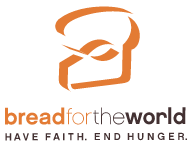Strengthening Resilient School Communities (SRSC)
This 5-year project started in October 2019 and is funded by Bread for the World. We target 40 schools in different districts of Malawi, as well as 400 households and communities. Its’ main goal is to contribute to improving the nutritional situation and protecting the resources in Malawian schools and communities. Together with our 20 partners, as well as representatives of the local government, we want to achieve more diversified nutrition in vulnerable households. To do so, we have already started conducting our Integrated Land Use Design (ILUD) Training and we will continue with training sessions on Hygiene, Sanitation, Value Addition, and Disability Mainstreaming. On top of that, we have constructed rainwater harvesting structures at the most vulnerable partner schools.
Rainwater Harvesting
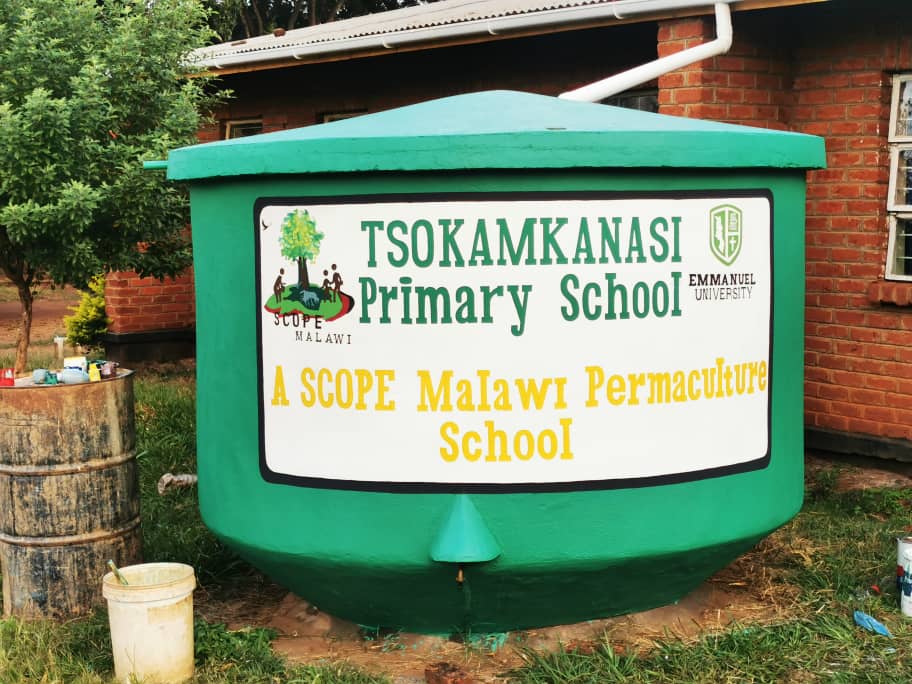
Water management is an important part of permaculture. Farming in Malawi is highly dependant on the rainy season. During this time it often comes to floods, as the soil is dry and compact which makes it difficult for the water to be absorbed. When the dry season comes all the extra water has evaporated and the soil is left dry again. One solution is rainwater harvesting. Thanks to the SRSC project we were able to build calabashes, hand washing stations, and underground tanks in 16 partner schools throughout Malawi. We hope to support our schools with the extra water all year round.
Picture to the left: 10.000 litre Calabash at Tsokamkanasi Primary School Lilongwe.
Picture down right: Handwashing station before it was painted.
Picture down left: Honorable Nancy Tembo during the launch of our rainwater harvesting system at Tsokamkanasi.
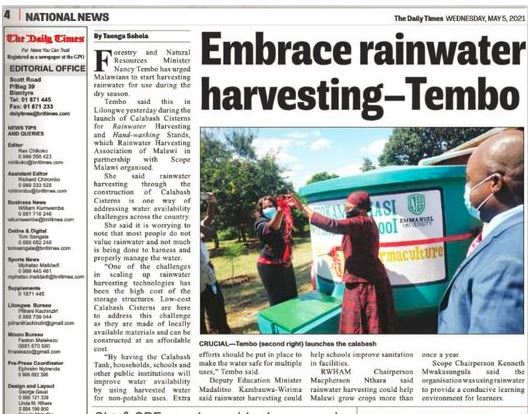
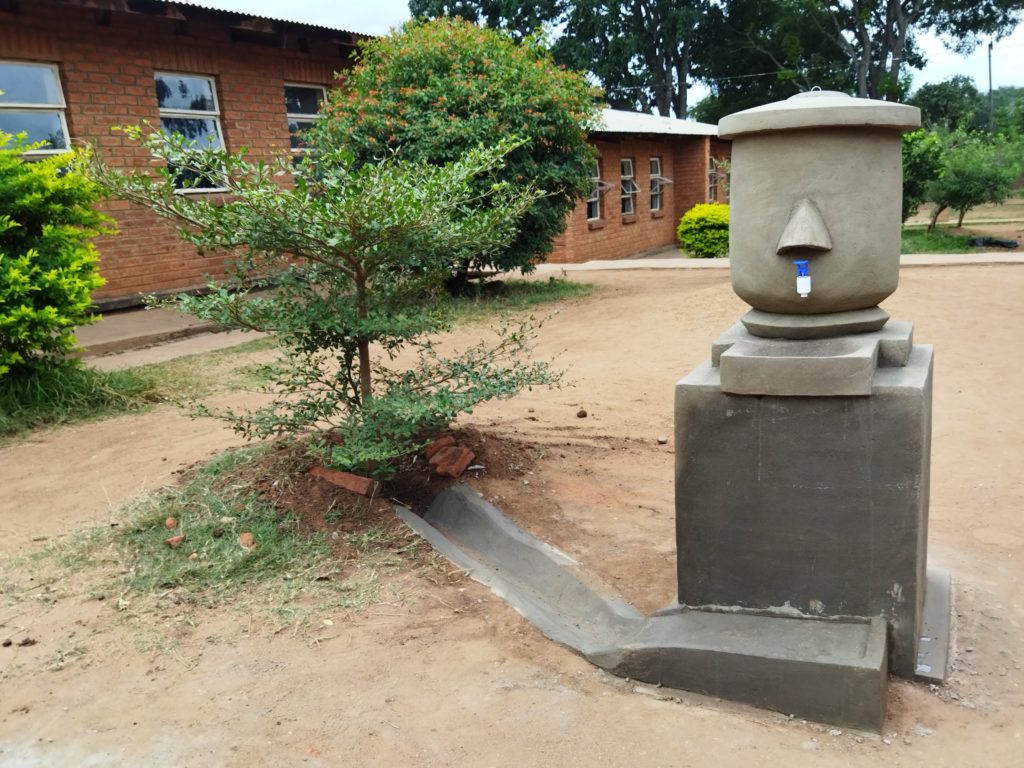
Integrated Land Use Design Training (ILUD)
As part of the SRSC project, we train Households, teachers and students on Integrated Land Use Design (ILUD). But what exactly are we doing? Our ILUD training focuses on vulnerable household members that are based around our 37 partner schools. We dedicate one week per partner targeting two school communities at the same time. We start the week with a community mapping. It is a great tool to find out what is really going on in a community on the household level. We learn about the dietary- and crop diversity of the targeted community and through the household mapping, we can identify the most vulnerable households. After that, the ILUD training days are starting. We do theory sessions on Permaculture, Soil-, Water- and Waste management. Apart from that we also integrate a lot of practicals such as swale making, making Biofertilizer (BOCASHI), mixing natural pesticides, and digging pits.
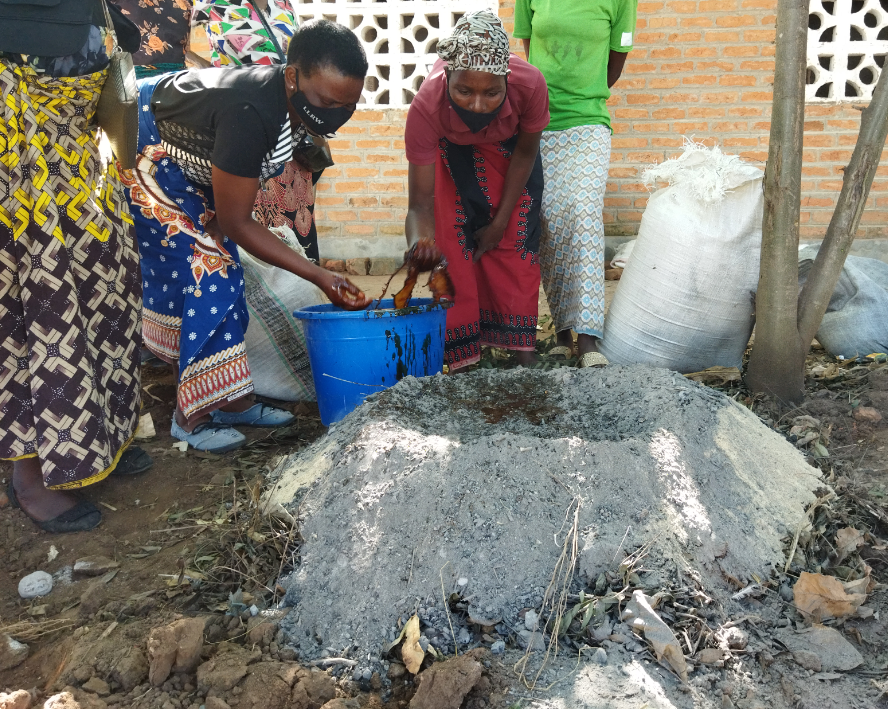
BOCASHI is an organic manure full of nutrients for the soil.
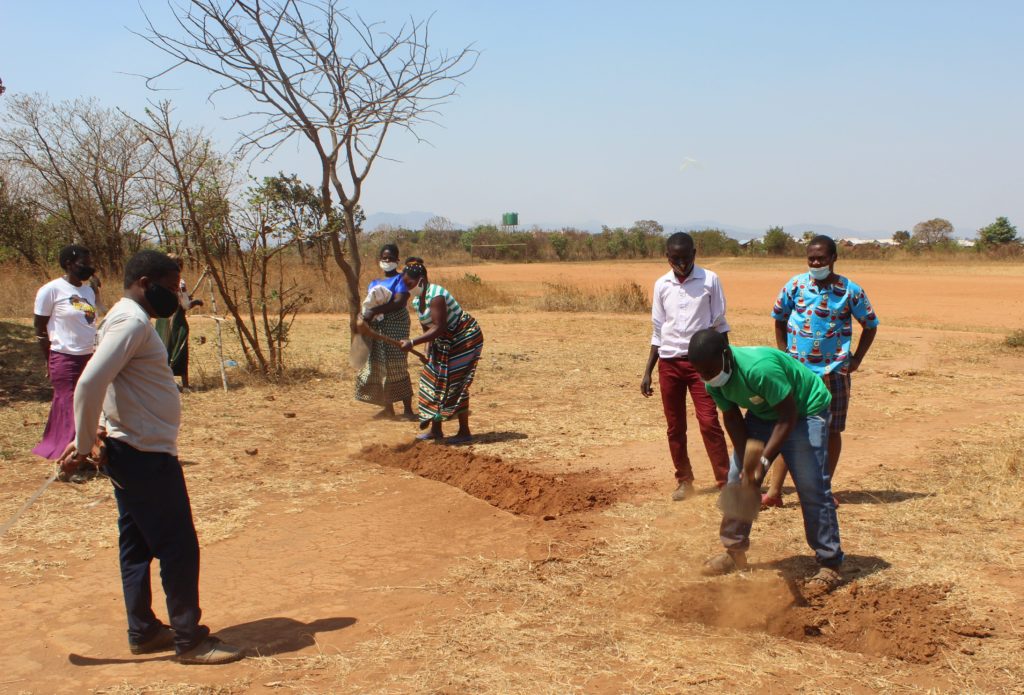
Swales slow down water masses and are especially useful when there are hills, and the water would otherwise carry away a lot of soil.
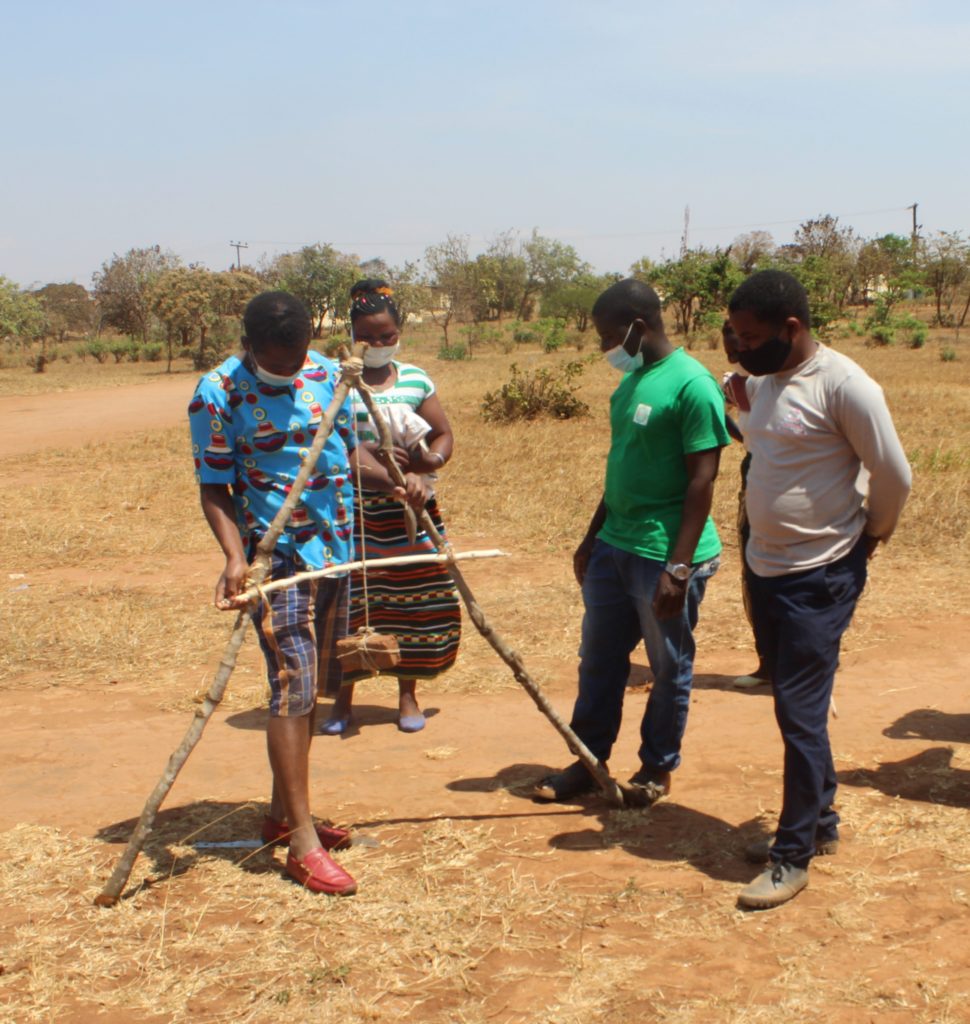
Our do-it-yourself A-frame is an important tool for successful water management.
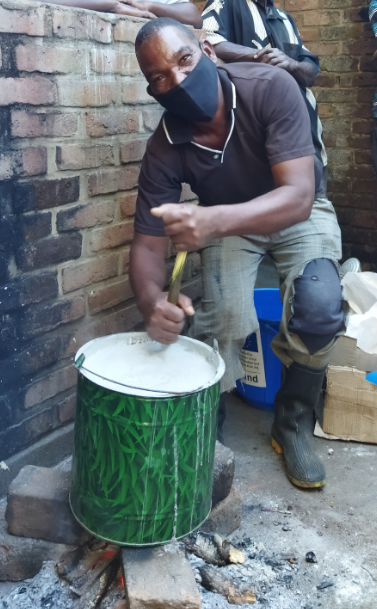
Natural pesticides can be easily made from ash, water, and soap. They are effective and less aggressive towards the plant.
